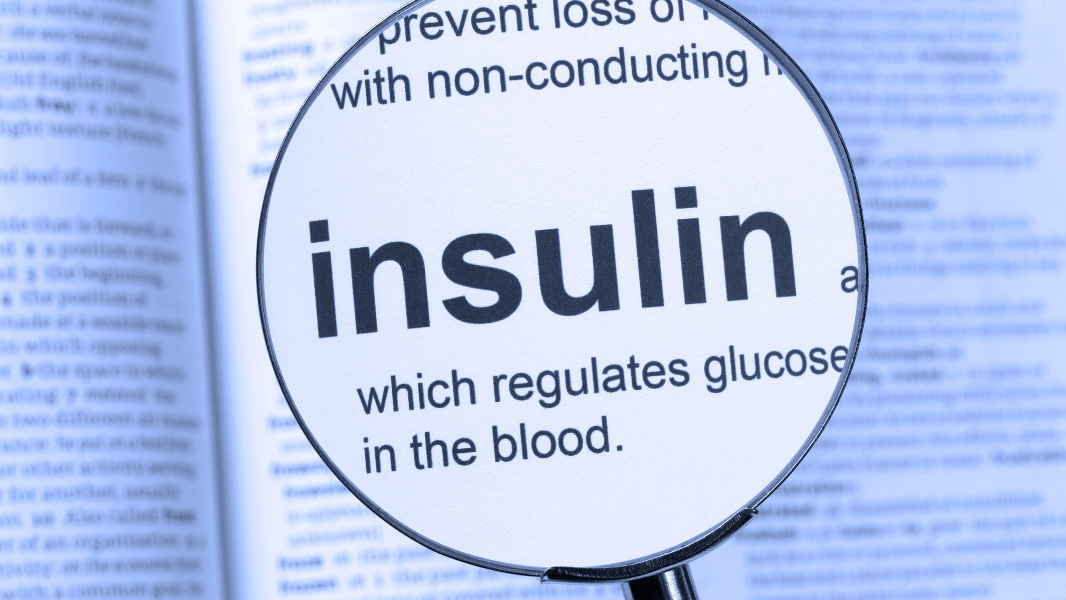Did you know that more than 34 million Americans have diabetes, and it's insulin, a vital hormone, that stands between them and potentially life-threatening complications?
Understanding the multifaceted roles and the mechanism of insulin can empower individuals to manage and prevent diabetes more effectively. Insulin’s primary role is to keep our blood sugar levels in check, but its functions extend beyond this pivotal task, playing a crucial role in our overall metabolism and energy balance.
What Are The 5 Core Functions of Insulin?
Insulin is like a multitasking wizard that juggles various crucial tasks to keep our body running smoothly. When you munch on a meal, insulin gets into action, ensuring the glucose from the food enters your muscle and fat cells, powering your body’s activities. But that's not where its role ends; insulin also manages excess glucose, fat metabolism, protein synthesis, and maintains the delicate balance of blood sugar levels.
- Managing Glucose Entry: It acts like a key, opening the door of cells to let glucose in, fueling them with energy.
- Storing Extra Glucose: Converts and stores extra glucose as glycogen in the liver and muscles, ensuring a backup energy supply.
- Overseeing Fat Metabolism: It tells the body to store fat and halts fat breakdown, playing a vital role in fat metabolism.
- Supporting Protein Synthesis: It helps in building new proteins by promoting amino acid uptake, aiding muscle growth and repair.
- Keeping Blood Sugar Steady: By doing all the above, it keeps blood sugar levels within a healthy range, warding off hyperglycemia.
How Does Insulin Function in Your Body?
The tale of insulin’s action begins in the pancreas, where it's secreted in response to a rise in blood glucose levels post-meal. Insulin then embarks on its journey through the bloodstream, reaching various cells, especially muscle and fat cells, where it binds to insulin receptors, kickstarting a series of signaling events.
As insulin binds to its receptors, it triggers the movement of glucose transporters to the cell membrane, facilitating glucose’s entry into the cells. This well-orchestrated action of insulin ensures your blood sugar levels stay within a healthy range, steering clear of the harmful effects of hyperglycemia. It's a remarkable mechanism that reflects how our body strives to maintain a state of metabolic harmony.
What Occurs When Your Body Lacks Insulin?
When insulin is absent or ineffective, it’s like throwing a wrench in the finely-tuned machinery of your body. Individuals with Type 1 Diabetes face an autoimmune assault on their insulin-producing beta cells, rendering them dependent on external insulin administration to keep their blood sugar levels in check.
On the other hand, Type 2 Diabetes presents a scenario of insulin resistance. Despite having insulin, the body’s cells turn a blind eye to it, leading to a buildup of blood glucose levels. The management of Type 2 Diabetes involves a blend of lifestyle modifications, oral medications, and sometimes, insulin therapy, highlighting the indispensable role of insulin in our body’s glucose management.
What's Insulin's Principal Role?
Insulin’s resume is robust, but its principal role is undeniably managing blood glucose levels. By aiding glucose uptake into cells, insulin ensures that our body has a steady energy supply, reflecting its primary role as the guardian of glucose homeostasis.
Moreover, the ripple effects of insulin’s main action echo through various metabolic pathways, shaping our overall metabolic health. Adopting a lifestyle that supports insulin function can be a stepping stone towards bolstering our metabolic resilience against diabetes and other related conditions.
Understanding Insulin: Your Key to a Healthy Body
Insulin is not just a hormone; it’s a lifesaver that keeps the metabolic ship sailing smoothly amidst the turbulent waters of blood sugar fluctuations. Understanding the pivotal roles and actions of insulin can equip individuals with the knowledge to manage or potentially prevent diabetes. It beckons a call to action for everyone to foster a lifestyle conducive to insulin function and to seek professional guidance for personalized advice on managing insulin and diabetes.
Through understanding and appreciation of insulin’s role, we are not just making strides towards better diabetes management but towards enhanced metabolic health and wellbeing.






